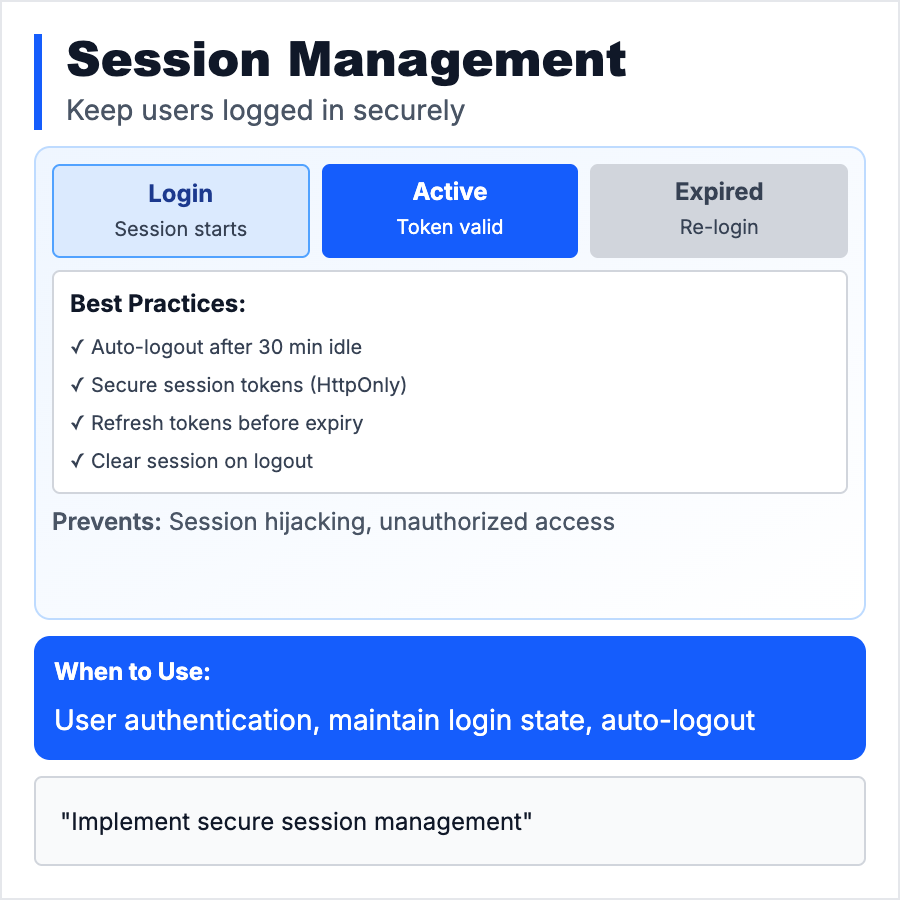
What is Session Management?
Session Management is how you track logged-in users across requests. After login, you create a session (unique ID stored server-side + session cookie sent to browser). On each request, you validate the session cookie to identify the user. Sessions expire after inactivity or logout. Use httpOnly, secure, sameSite cookies to prevent XSS and CSRF attacks.
When Should You Use This?
Use session management for traditional web apps where users log in and navigate multiple pages. Use server-side sessions (Redis, database) for security—store only session ID in cookie, not user data. For SPAs/APIs, consider JWTs instead. Set reasonable session timeouts (30min inactivity, 7 days max). Implement "remember me" with separate long-lived tokens.
Common Mistakes to Avoid
- •Storing sessions in localStorage—vulnerable to XSS; use httpOnly cookies
- •Not setting secure flag—sessions sent over HTTP can be intercepted; require HTTPS
- •Not implementing logout—always invalidate sessions on logout, both client and server
- •Long session timeouts—limit to 30min inactivity, force re-auth for sensitive actions
- •Not regenerating session IDs after login—prevents session fixation attacks
Real-World Examples
- •Reddit—uses session cookies with httpOnly and secure flags for logged-in users
- •Next.js—next-auth handles session management with encrypted JWT cookies
- •Django—built-in session framework with database or Redis backend
- •Express—express-session middleware with Redis for distributed session storage
Category
Cybersecurity
Tags
session-managementcookiessession-tokensauthenticationsecurity